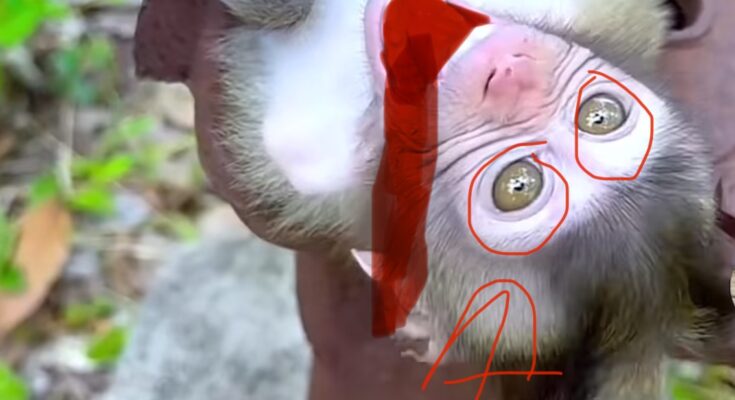In the heart of forests and bustling cities alike, a silent tragedy unfolds every day — injured, orphaned, and abandoned monkeys, especially baby monkeys, suffer and die because they are not rescued in time. While monkeys are often seen as intelligent, playful creatures, they are increasingly vulnerable in today’s rapidly changing world. Human expansion, deforestation, road accidents, electrocution, and illegal pet trade are only a few of the threats that lead to their suffering — and without timely intervention, many never get a second chance at life.
Baby Monkeys: The Most Vulnerable Victims
Baby monkeys are particularly fragile. In the wild, they depend entirely on their mothers for food, warmth, and protection. When a mother is killed in an accident or captured, the infant is left helpless. Without immediate rescue and specialized care, baby monkeys can quickly succumb to hunger, dehydration, cold, or predation.
Even in urban areas, where monkeys often coexist with humans, baby monkeys fall from trees, get hit by vehicles, or suffer burns from power lines. Many people walk past these tiny, crying creatures without realizing that immediate help can save their lives.
Adult Monkeys Also Need Help
While baby monkeys tug at heartstrings, adult monkeys face equal danger. Monkeys injured in traffic accidents or electrocuted on power lines may lie wounded for hours, in pain and shock, unless someone intervenes. Diseases, fights with other monkeys, and poaching leave many adult monkeys wounded and unable to care for themselves.
Rescue organizations often report that by the time they receive a call, it’s too late. A delay of even a few hours can mean the difference between recovery and death. That’s why awareness and fast action are critical.
The Role of Rescue Teams and NGOs
Wildlife rescue organizations and animal welfare NGOs play a vital role in saving monkeys. These teams are trained to handle both frightened adults and delicate infants. They provide emergency first aid, rehabilitation, and when possible, release the animals back into the wild. However, their success often depends on the public — someone must first report the incident in time.
Sadly, many people do not know who to call or assume someone else will help. In some areas, rescue teams are underfunded or overwhelmed, making public support and donations crucial for their survival.
How You Can Help
If you ever come across an injured or orphaned monkey:
-
Call a local wildlife rescue or animal helpline immediately.
-
Do not try to feed or touch the monkey, especially if it’s injured — this can cause stress or further harm.
-
Provide information about the location and condition of the monkey to help rescuers respond quickly.
You can also help by spreading awareness, supporting local rescue centers, and educating others about the risks monkeys face.
Conclusion
Monkeys are intelligent, emotional animals capable of forming deep bonds. When they are injured or orphaned, they experience pain, fear, and distress — just like us. The difference between life and death often comes down to how quickly someone acts. By staying informed and being ready to help, you could be the reason a baby monkey gets to grow up or an injured adult gets a second chance. Let’s not let these lives be lost in silence.



